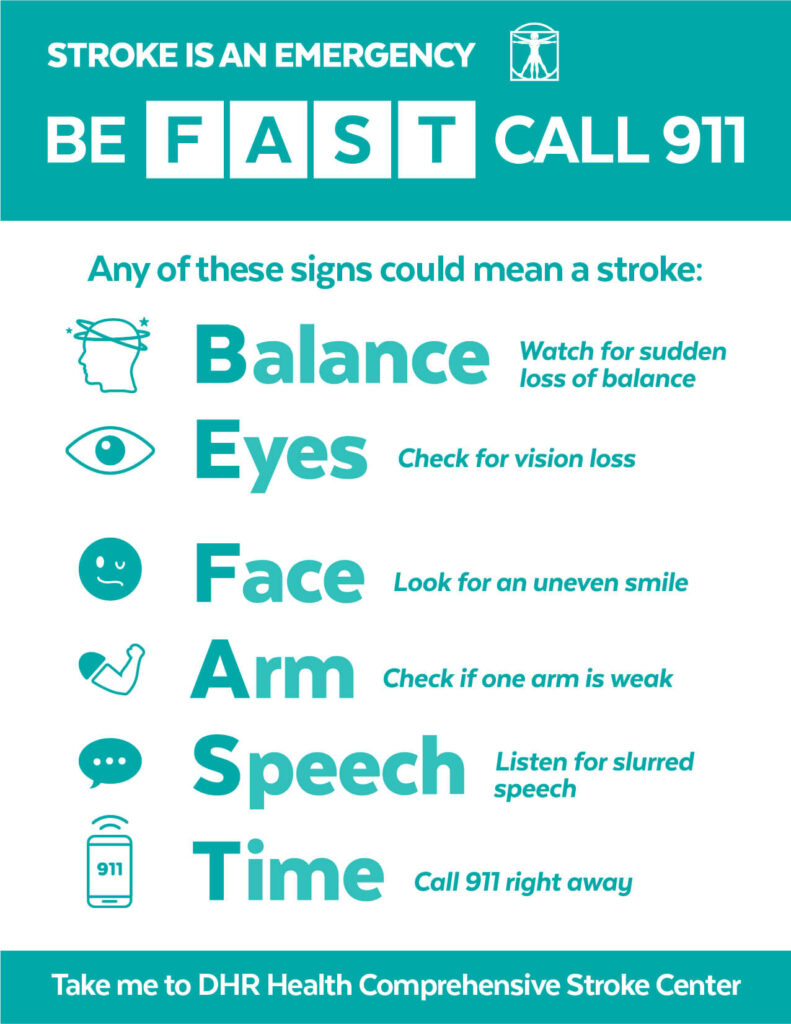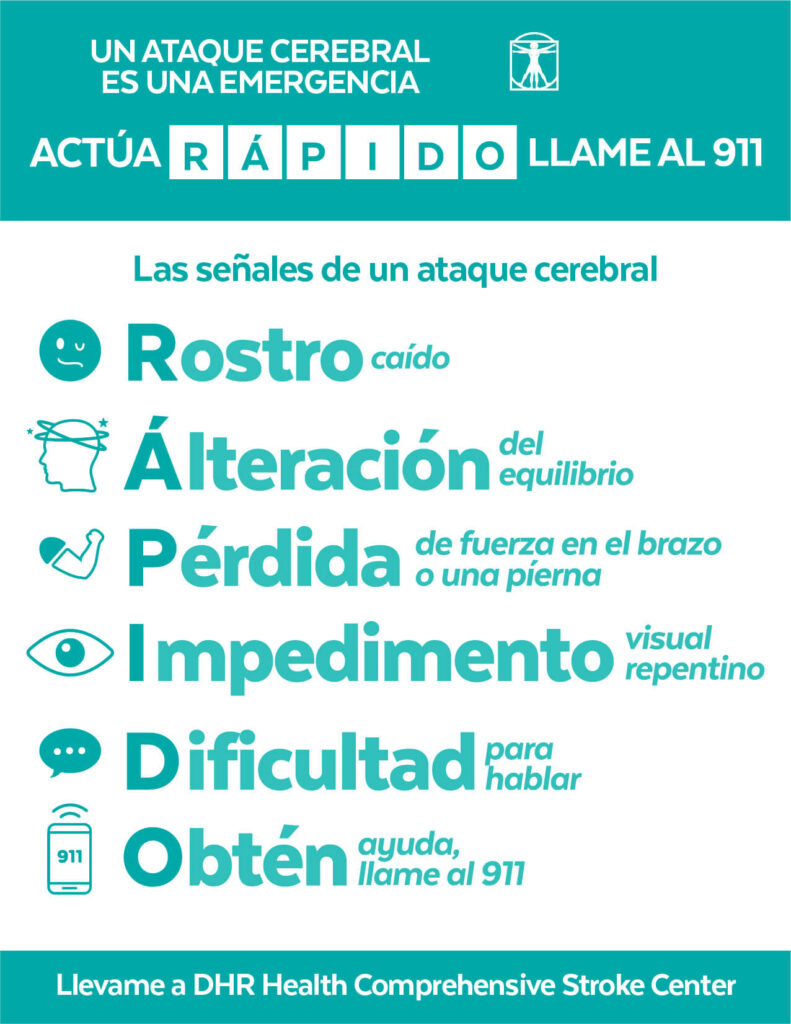
Mega Doctor News
With the month of May being “National Stroke Awareness Month,” the DHR Health Neuroscience Institute team encourages the community to know about crucial stroke prevention information and response. According to the Center for Disease Control, stroke remains a leading cause of disability and death worldwide. In the United States about 795,000 people suffer a stroke each year. Which means someone has a stroke every 40 seconds, and every 3 minutes and 11 seconds someone dies from a stroke.
However, timely intervention can significantly improve outcomes for people. Which is why DHR Health encourages all to learn with the BE FAST acronym.
| The acronym BE FAST stands for: |
| B: Balance: Sudden loss of balance or coordination |
| E: Eyes: Sudden vision changes or loss of vision in one or both eyes |
| F: Face: Sudden weakness or drooping on one side of the face |
| A: Arms: Sudden weakness or numbness in one arm or leg |
| S: Speech: Sudden difficulty speaking or understanding speech |
| T: Time: Time to call emergency services immediately if any of these symptoms occur |

Recognizing these signs and acting quickly could make the difference between life and death, or between a full recovery and permanent disability for an individual.
“Recognizing the signs of stroke and acting fast is one of the most important things we can do,” said Dr. Patricia Fernandez, DHR Health Comprehensive Stroke Center Medical Director. “By raising awareness about the BE FAST acronym, we empower individuals to take action and seek emergency medical care at the first sign of a stroke. When a stroke happens, every minute counts.”
Dr. Fernandez encourages the community to increase public awareness about stroke prevention by knowing the warning signs and symptoms. When this happens to a family member or friend, it is important to call 9-1-1 and seek medical care as soon as possible.
A patient who has suffered a stroke would typically be seen by a neurologist. Neurologists specialize in diagnosing and treating disorders of the nervous system, including strokes. They are trained to evaluate symptoms, order diagnostic tests such as brain imaging scans (like CT or MRI), and develop treatment plans to help manage and rehabilitate stroke patients.
DHR Health stands out as the first Joint Commission Certified Comprehensive Stroke Center in the region and a Level I Comprehensive Stroke Center. To make an appointment and access specialized care for stroke patients, please contact the DHR Health Neuroscience Institute at (956) 362-8500. The dedicated DHR Health Neurologists and Neurointerventional Radiologists are committed to providing compassionate and expert care to help those on a journey to recovery from stroke.









